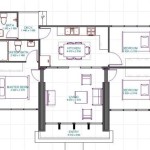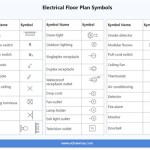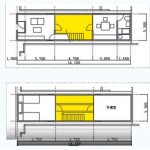Essential Aspects of Planning for House Construction
Building a house is a significant investment and a complex undertaking. To ensure a successful project, it is crucial to carefully plan and consider all essential aspects. Here are some key elements that must be taken into account:
1. Site Selection
The location of your home plays a vital role in its functionality, aesthetics, and overall value. Factors to consider include the proximity to amenities, transportation, schools, and green spaces. Additionally, assess the site's topography, soil conditions, and drainage. Determine if there are any potential hazards or easements that could affect the construction or use of the property.
2. Architectural Design
The architectural design of your house should reflect your lifestyle, needs, and personal style. Consider the size, layout, and architectural features that will enhance your daily living. Collaborate with an experienced architect to create a design that optimizes space utilization, natural light, and energy efficiency. The architectural style should complement the neighborhood and the surrounding environment.
3. Building Materials
The choice of building materials significantly affects the durability, aesthetics, and performance of your home. Consider factors such as climate, maintenance requirements, and sustainability. Research different materials for roofing, siding, windows, and insulation. Seek professional advice to select the most suitable materials for your specific needs and budget. Also, consider the environmental impact and energy efficiency of the materials used.
4. Construction Specifications
Detailed construction specifications provide clear instructions for the construction process. They define the quality of materials, building methods, and workmanship. Ensure that the specifications comply with building codes and industry standards. Involve a qualified contractor to develop comprehensive specifications that address all aspects of construction, including materials, finishes, and installation procedures.
5. Budget and Financing
Establishing a realistic budget is essential before starting construction. Consider the cost of land, materials, labor, permits, and other expenses. Explore different financing options, such as mortgages, construction loans, and home equity lines of credit. Secure financing before committing to the project to avoid potential financial setbacks. Monitor expenses throughout the construction process to ensure adherence to the budget.
6. Permits and Approvals
Obtain all necessary permits and approvals from local authorities before starting construction. These may include building permits, zoning permits, and environmental approvals. Submit plans and specifications for review and approval to ensure compliance with building codes and regulations. Allow sufficient time for the permit application process and any revisions required.
7. Contractor Selection
The choice of contractor is crucial to the success of your project. Interview potential contractors, check references, and verify their experience and qualifications. Consider their communication skills, attention to detail, and ability to adhere to timelines and budgets. Establish a clear contract that outlines the scope of work, payment schedule, and dispute resolution mechanisms.
8. Construction Management
Effective construction management ensures that the project is completed on time, within budget, and to the desired quality standards. Regularly monitor the progress of construction, address issues promptly, and coordinate with all parties involved, including the contractor, architect, and subcontractors. Implement quality control measures to verify that the work meets the agreed-upon specifications.
9. Communication and Collaboration
Open communication and collaboration among all stakeholders are essential for a successful building project. Establish clear communication channels and regular meetings to discuss progress, address concerns, and make decisions. Foster a positive and respectful working environment where all parties feel valued and heard. This collaborative approach helps prevent misunderstandings and ensures that everyone is working towards the same goal.
10. Post-Construction Follow-Up
Once construction is complete, conduct a thorough inspection to verify that the project meets the specifications and expectations. Address any outstanding issues promptly. Establish a maintenance plan to preserve the home's condition and value over time. Regularly inspect the property and schedule maintenance tasks to prevent future problems. By proactively caring for your home, you can ensure its longevity and enjoyment for years to come.

Small House Design 2024001 Pinoy Eplans Floor Plans

Easy To Build Houses And Floor Plans Houseplans Blog Com

House Plans How To Design Your Home Plan

House Plans How To Design Your Home Plan

Est House Plans To Build Simple With Style Blog Eplans Com

Floor Plans Learn How To Design And Plan

Low Budget Simple House Design Plans For Builders Blog Builderhouseplans Com

Small House Plans We Love Houseplans Blog Com

House Plans How To Design Your Home Plan

Est House Plans To Build Simple With Style Blog Eplans Com








